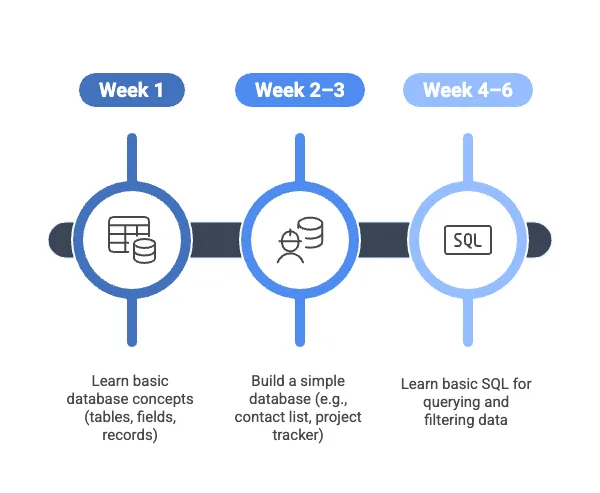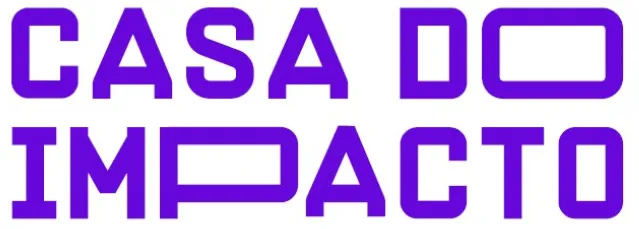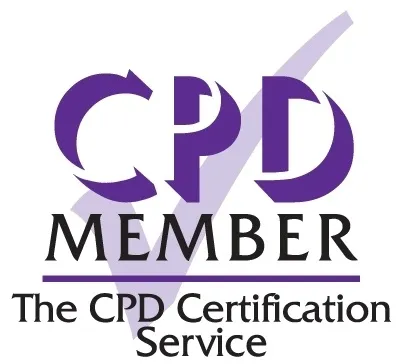1️⃣ What Is Database Management?
Database Management is the process of organizing, storing, and accessing digital information efficiently so it can be used to support business decisions, digital products, and online services. It involves using tools to create and maintain databases, write queries to retrieve data, and ensure everything runs smoothly and securely.
Think of it as running a highly organized digital filing cabinet. But instead of folders and papers, you’re managing huge volumes of data—like customer info, sales records, or product inventories—that need to be accessed quickly and accurately.
Key Examples:
- Use SQL to find all customers who made a purchase last month
- Set up a MySQL or PostgreSQL database for an e-commerce site
- Build and manage a customer database using a no-code tool like Airtable—customize tables, filter data, and automate tasks without writing code
Database Management powers everything from websites and mobile apps to business intelligence dashboards and customer service systems.
2️⃣ Why Database Management Matters in 2025 and Beyond
In 2025, data is the engine behind AI, automation, and digital growth. With businesses generating massive data daily, Database Management is key to staying competitive. The global DBMS market is projected to soar from $117.4B in 2024 to $367.0B by 2033 (IMARC Group).
From healthcare to retail to government, every sector relies on well-structured databases to deliver personalized services, track performance, and streamline operations. SQL and database skills are now essential and in high demand across various industries, not just in tech roles. These skills can significantly boost employability and open up exciting career advancement opportunities.
Why It’s Important
✅ Powers the backend of AI, automation, and analytics tools
✅ Enables remote work, real-time decision-making, and scalable digital services
✅ Increases demand for roles like data analysts, database admins, and backend devs
✅ Helps solopreneurs and freelancers manage client and project data without coding
💡Industry Spotlight
- Healthcare: Hospitals use databases to track patient records, schedule treatments, and comply with data privacy regulations.
- E-commerce: Online stores rely on product and customer databases to manage inventory, process orders, and personalize shopping experiences.
3️⃣ Real-World Applications
Database Management solves real problems like eliminating manual data entry, improving accuracy, and enabling real-time access to critical information—making it essential across a wide range of industries.
4️⃣ Who Should Learn This Skill?
This skill is perfect for:
✅ Career changers looking to break into data roles like analyst or admin—no coding background required
✅ Entrepreneurs who want to organize customer data, track sales, or automate operations without hiring a tech team.
✅ Freelancers & Virtual Assistants looking to offer database setup, CRM management, or reporting dashboards.
✅ Professionals in non-technical roles (administrative, marketing, HR) who want to manage data more efficiently and make smarter decisions.
💡 Why It’s an Ideal Entry Point
Many non-tech professionals feel stuck due to job instability or lack of advancement. Database skills solve real business problems, are in high demand, and can be learned with free or low-cost tools—making this one of the most accessible tech skills for anyone ready to grow their career.
5️⃣ How Hard Is It to Learn?
Database Management is beginner-friendly if you take it step by step. You don’t need a tech background to start—just curiosity and a willingness to work with structured information. By focusing on real-world use cases and starting with no-code or low-code tools, you can build confidence quickly.
Here’s a realistic learning roadmap:
💡 Pro Tip: Start with a project that solves a personal or work-related problem—like organizing clients, tracking tasks, or creating a searchable inventory. This keeps learning focused and useful.
Effort Required:
- 10–15 hours to learn the basics using no-code or beginner SQL tools
- 30–50 hours to become job-ready with hands-on practice and projects
- Ongoing learning as you advance to more complex tools and use cases

6️⃣ Tools & Resources to Get Started
Here’s a list of essential tools to help you get started with Database Management:
💡 Ideal for Beginners: Start with Airtable—it’s free, highly visual, and a great way to learn core database concepts without writing code.
7️⃣ Career Pathways & Opportunities
The demand for data-savvy professionals is growing fast, and Database Management skills open doors to high-paying, flexible, and remote-friendly roles. Whether you’re looking for full-time employment or freelance gigs, this skill makes you a valuable asset to any data-driven team.
Here are some potential roles for database professionals:
Salary data is based on industry trends and projections. Ranges are approximate and can vary based on factors like experience, location, and company size.
💡 Freelancing Tip: Start by offering services like setting up Airtable databases, cleaning Excel/CSV files, or building internal dashboards for small businesses. These quick wins can lead to recurring clients and larger projects.
Database Management skills are especially valuable in industries like healthcare, e-commerce, marketing, and remote-first startups—making it a smart, future-proof skill for career growth.
8️⃣ How to Get Started Today
Here’s a step-by-step roadmap to start learning Database Management and applying it to real-world projects:
1️⃣ Choose a Tool
Start with a beginner-friendly platform like Airtable or Notion to get familiar with how databases work—no coding needed.
2️⃣ Complete a Tutorial
Follow a step-by-step guide to create a basic database. Try something simple like building a contact manager using Airtable's free tutorial or practice SQL with SQLBolt.
3️⃣ Build a Portfolio Project
Create a real-world project that solves a data problem in your personal or professional life. For example:
- Small Business Owners: Track inventory or client orders using Airtable.
- Virtual Assistants: Set up a CRM system to manage clients and tasks.
- Students or Job Seekers: Build a job application tracker using Notion or Google Sheets.
4️⃣ Join a Database or Data Skills Community
Learn from others, ask questions, and get feedback. Join forums like r/Database on Reddit, or the Airtable Community.
💡 Project Idea:
Create a “Client Management System” using Airtable or Notion. Include fields like contact info, project status, invoices, and notes. It's a great way to practice structuring and querying data in a useful, job-relevant way.








